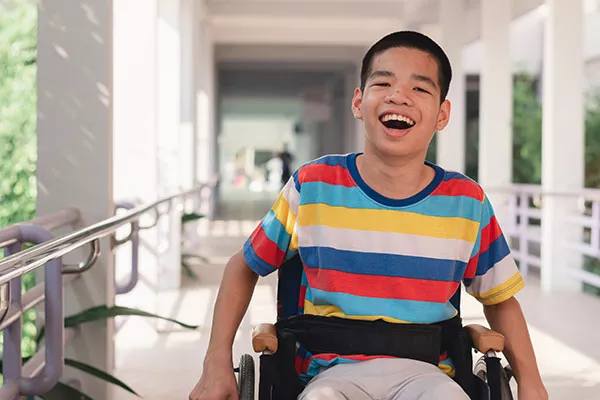This module focuses on a practical approach to recognising neuromuscular disorders. The target audience is Level 1 clinical staff, paediatric trainees, MDT (multidisciplinary team) members, GPs, health visitors, physiotherapists, occupational therapists and school nurses.

About
Children with a muscle disease face a difficult future. Each day their life becomes more difficult as their muscles slowly lose strength. With time they lose mobility, their hearts become weaker and they will need help with breathing.
Despite the severity of these conditions, it often takes a long time before a child is diagnosed, meaning they miss out on early treatments and interventions. Recognising neuromuscular disorders is key to early diagnosis.
Learning objectives
After working through this eLearning module you will be able to:
- apply a clear, structured approach to assessing motor development in children aged 0 - 5 years
- use the skills and knowledge to recognise abnormal motor development
- demonstrate the confidence to report your findings in a structured referral
- recognise the most common neuromuscular disorders in children
- explain the impact of early detection and why it is so important
- discuss the recent improvements in management, treatment and care of children with a neuromuscular disease.
New to RCPCH Learning?
Find more information about creating an account or retrieving your login details
External links









